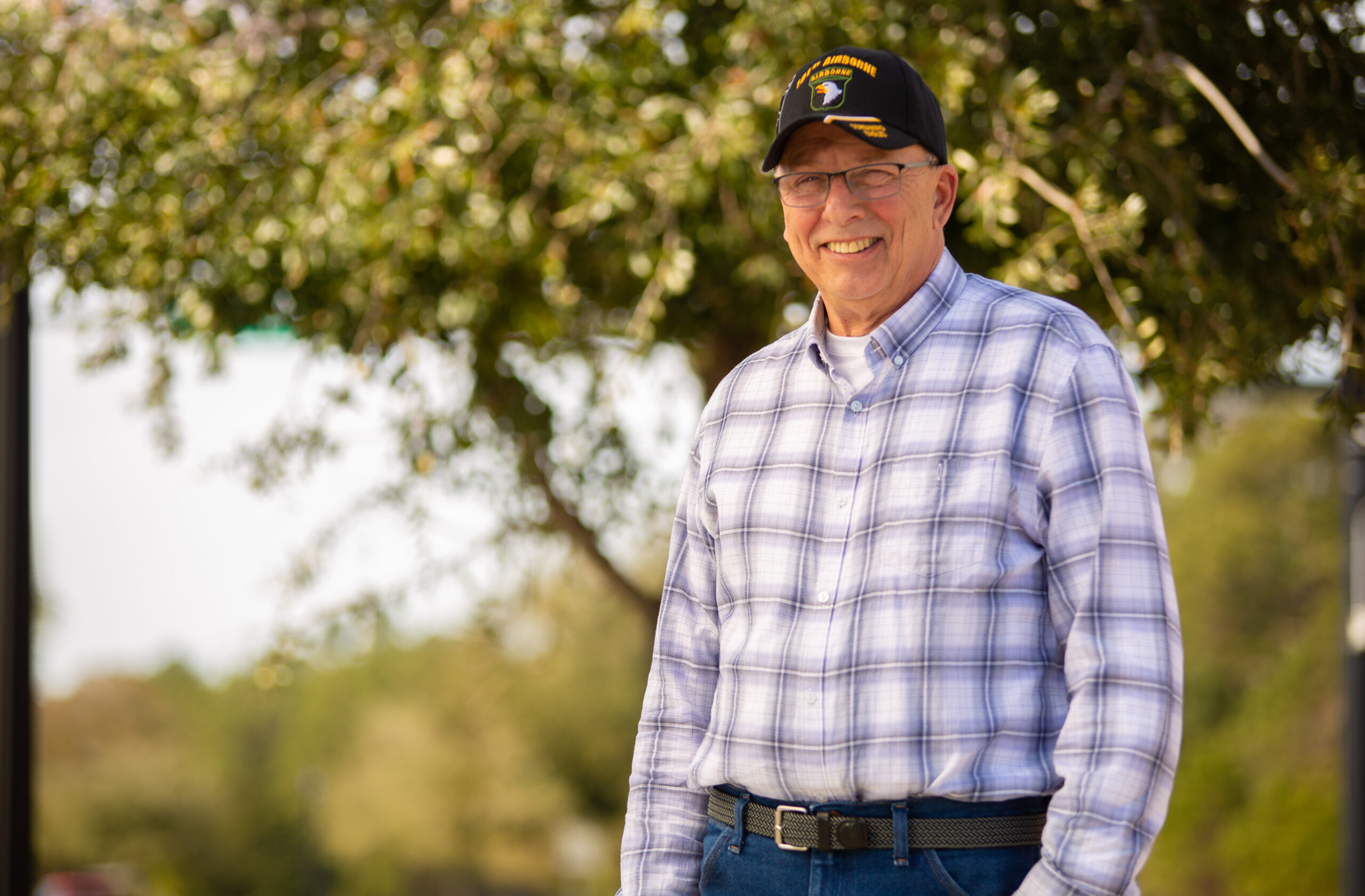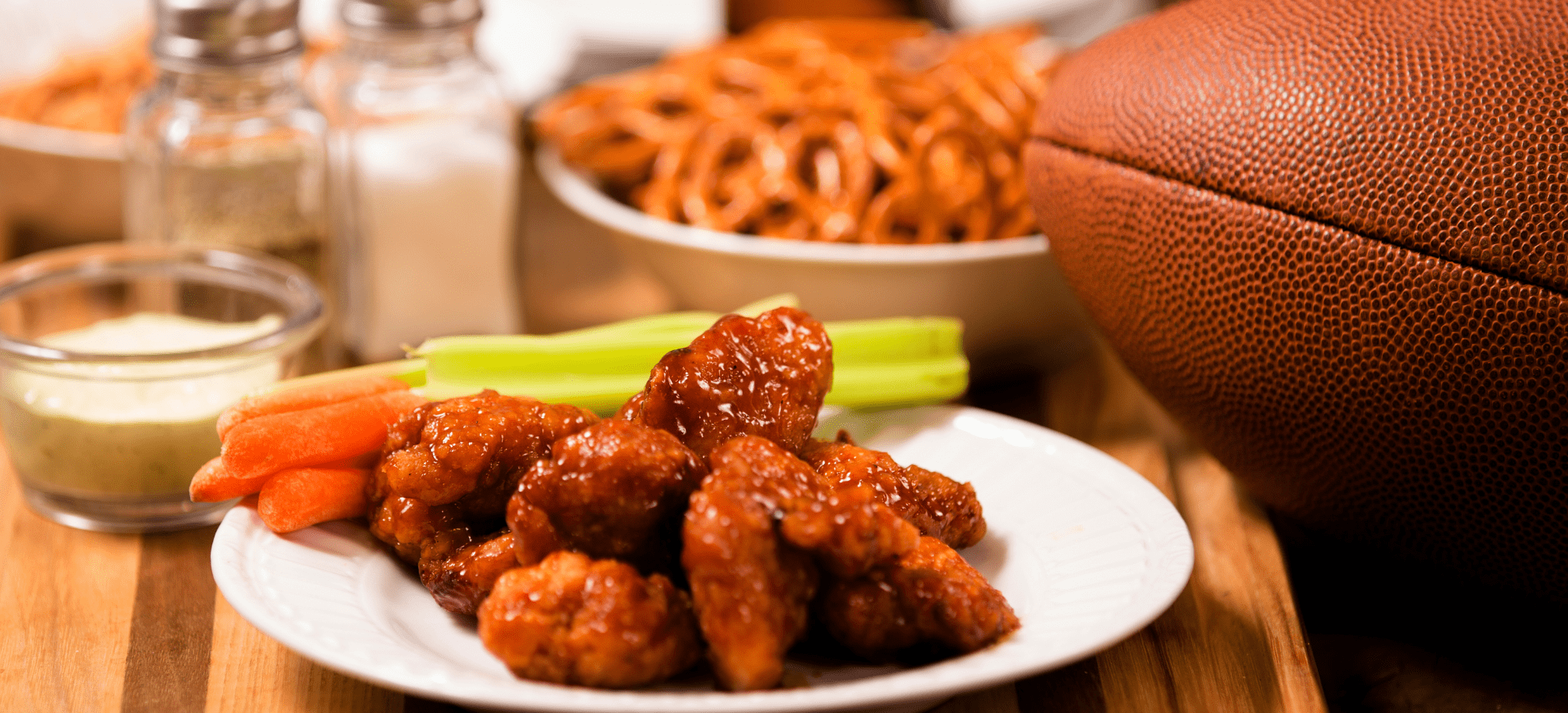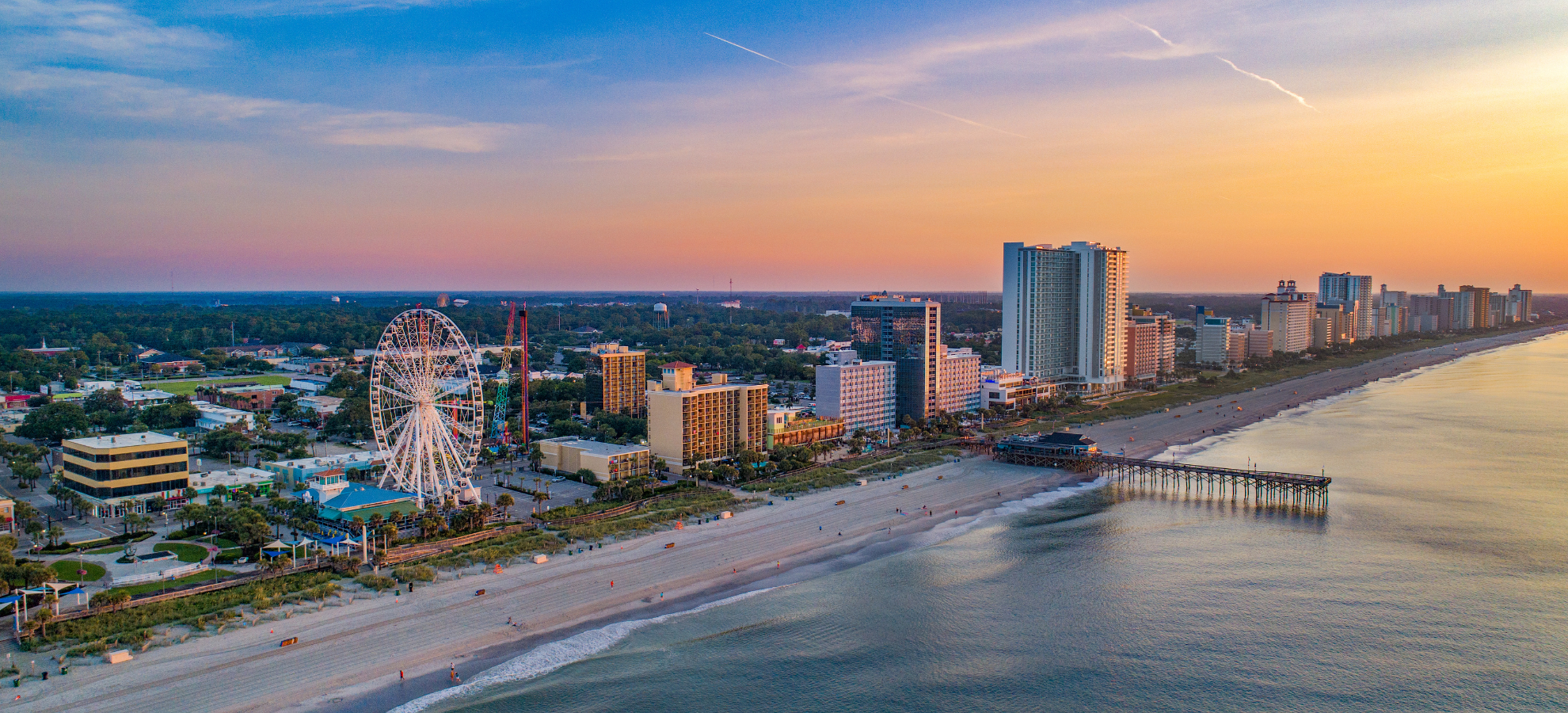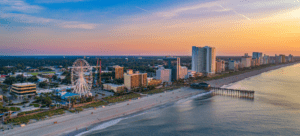101st Airborne and Battle of Ripcord Vietnam Veteran
Celebrate Our Veteran gives voice to the stories of the U.S. military veterans living amongst us. The actions of these brave and dedicated people, who have served our country both in active military duty as well as administrative positions, have and continue to contribute to the protection and preservation of us and our country.
We hope that this section of our paper is an opportunity for our community to hear and see veterans with new eyes, and for veterans to receive recognition and honor for their experiences and life journeys.
This month’s Celebrate Our Veteran recounts the story of Frank Marshall, as told in his own words. This is part one of a two-part series. Click here to read Part 2.
by Melissa LaScaleia
“My father was in the military before I was born— the 25th infantry at Pearl Harbor. He was with F company, at Schofield Barracks when the Japanese bombed Pearl Harbor during World War II.
James Jones, who wrote the book From Here to Eternity, was in his company. It was a fictitious book based on real characters that then became a movie; the book is about 75% true.
My father was really close to James Jones; his name was Frank Marshall, and James named him Salvatore Clark in the book. My father was with all those guys: Maggio, who Frank Sinatra played in the movie, and Robert Lee Stewart— in the book his name was Prewitt. They stayed close all through the years at Pearl Harbor and thereafter.
My father was also a musician; he played the guitar and had his own band. And in the circuit around Philadelphia, they all played in clubs. Another band that did the same thing was called Bill Haley and the Comets. Because they were all in the same circuit, my father knew Bill Haley. When my father’s band broke up, two guys in my father’s band became a part of the Comets.
I grew up in Philadelphia on 11th and Ontario. I went to school, and as a kid, I worked at the bowling alley as a pin boy. When someone would knock the pins down, my job was to pick them up and push a button to have them be set back down in order again. I did everything to make money.
My last year in high school, I bought a 1965 Pontiac GTO, a hot rod car. During that time it was during the Vietnam conflict, and I knew I was getting drafted any day. One Sunday morning at 6am, my best friend at the time knocked on my door and said, ‘My father got us into the Army Reserve, we have to go today, let’s go.’
It was difficult to get into the Army Reserve. Everyone was doing it as a way to avoid the draft. It was an incredible opportunity. But I said no because I didn’t want to go into the reserves. I thought if I went into the military, I’d go in the army, I’d serve my two years, and hope the Vietnam conflict would be over. Everybody was protesting, and I figured the war would come to an end soon, and I’d just serve in the military my two years.
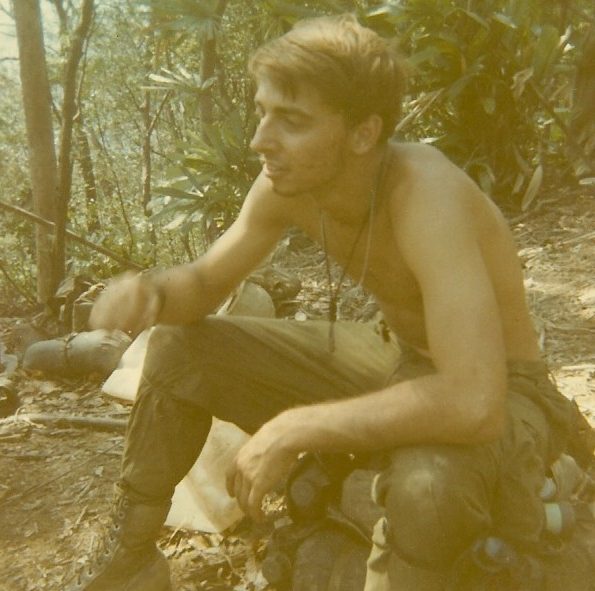
A few months later, I got drafted, and I left January 14, 1969, for Fort Bragg, NC for basic training. Then I went for infantry training at Fort Dix, NJ. When I finished training there, they picked me to go into another program called NCOCS, Non Commissioned Officer Candidate School.
So I went to Fort Benning, GA for more training. That training was a crash course, and at the end you become a sergeant; then you would go to Vietnam to lead troops in a higher command.
I didn’t want to go to Vietnam as a leader. I heard a lot of stories about the sergeants, they weren’t very well liked. So I didn’t pass that course, I didn’t want to. Instead, I came out as a specialist, and got sent to Vietnam.
When I got to Vietnam, in October 1969, I was down south in Long Binh. Everybody told me that as long as I didn’t get put with the 101st Airborne Division, I’d be fine. Because they were the ones up by the DMZ, the demilitarized zone, the line that divided North and South Vietnam.
Well, I got put with the 101st. So I got sent all the way up north, in Phu Bai, a base camp called Camp Evans, close to Hue, in the 2/506 Brigade.
And I did some additional training. The company I was assigned was one of the companies that was on Hamburger Hill— one of the most infamous battles of Vietnam. And a lot of the men in that company were either wounded, killed, or going home. So at least half of us that made up that Brigade were new guys; they called us Cherries.
So they load us on a helicopter to go out to the field. My company was out in the mountains in the A-Shau Valley. As my helicopter is landing, I’m siting on the edge, looking out, and I can see guys standing on the ground. They were dirty, muddy, long haired, and unshaven, and it scared the hell out of me, because I just couldn’t imagine being in that condition.
There was another helicopter right behind mine that had six guys on it. And as it was landing, the skid got caught in some underbrush and it tilted. And as it did, two guys jumped off and unbalanced it, so that the other four fell out. The helicopter became out of control and they all died in a freak accident in front of us.
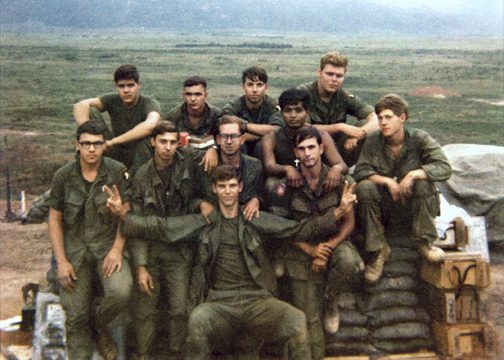
The same day, the company moved to another mountain top. I was in total shock from everything I had witnessed so far. It was my first day, and I couldn’t believe I had to go through this for a year.
I was carrying an M-16 rifle at the time. And because of that, they put me first, which is called the point man, which means, I lead everyone forward. I was a terrible point man. I was so disoriented because I was frightened, I never knew where to go. So when our grenade launcher was killed, they appointed me to his position.
When the monsoons arrived, we had to get out of the mountains for a few months, so we went into the flatlands at the base of the mountains.
Then on March 12, my company went in to try to open a firebase called Ripcord, on a high mountain top, at the edge of the A-Shau Valley, 20 miles from Hue. The purpose is to put artillery guns and all kinds of weapons on the top to protect everybody in the area.
My company was Alpha company. We went in to open it first, and it turned into a hot LZ— which means when the helicopters are landing, we were getting hit with all kinds of fire power. So we had to evacuate the hill. We lost three men that day, and we had quite a few wounded.
When we went in as a whole to open this fire base, we started with 4 platoons, and ended with 3. From March 12 through April 15, different companies kept trying to open up the fire base, and it finally happened on April 15. Once we did, the North Vietnamese army continued to try to throw us off the hill and take it back. And they continued to fight us and all the companies in the area.
I was always assigned to be around the lower hills, and lower areas, guarding the firebase. All through the following months, I was walking mountains up and down. We made a lot of contact, and lost a lot of guys in that time.
Whelan Norris, the brother of Chuck Norris, was in my company and he was up ahead a little bit of me when he got killed. Bob Kalsu, an A football player for the Buffalo Bills, could have gotten out, but he took his draft. He was there as a lieutenant; he got killed.”
Continued next month. Click here to read Part 2.




